NAWAMED Jordan: School Camps to show the design of the green façade for the treatment of grey water in the student dormitory
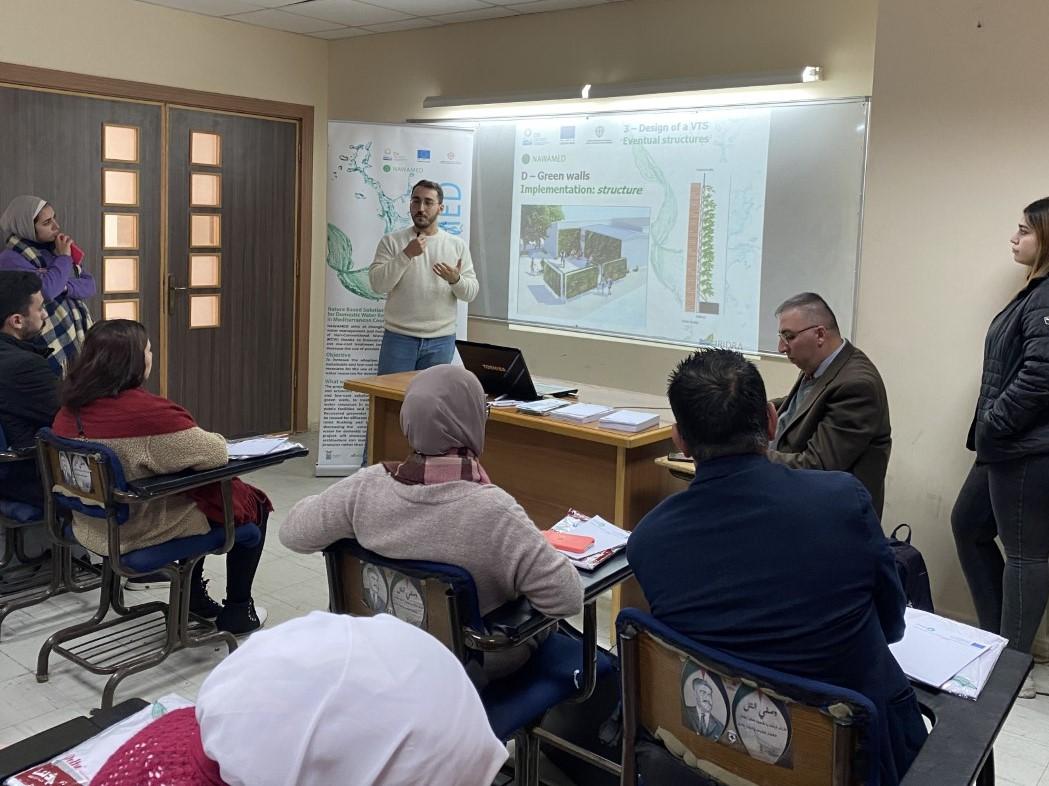
The University of Jordan, with the support of IRIDRA, NAWAMED technical partner, organised two school camps at the University of Jordan (UJ) on Sunday, 15 January 2023.
More than 30 experts and professionals from the private and public sectors, including the Ministry of Water and Irrigation, water companies, and the Academia, together with more than 80 university students, attended the events.
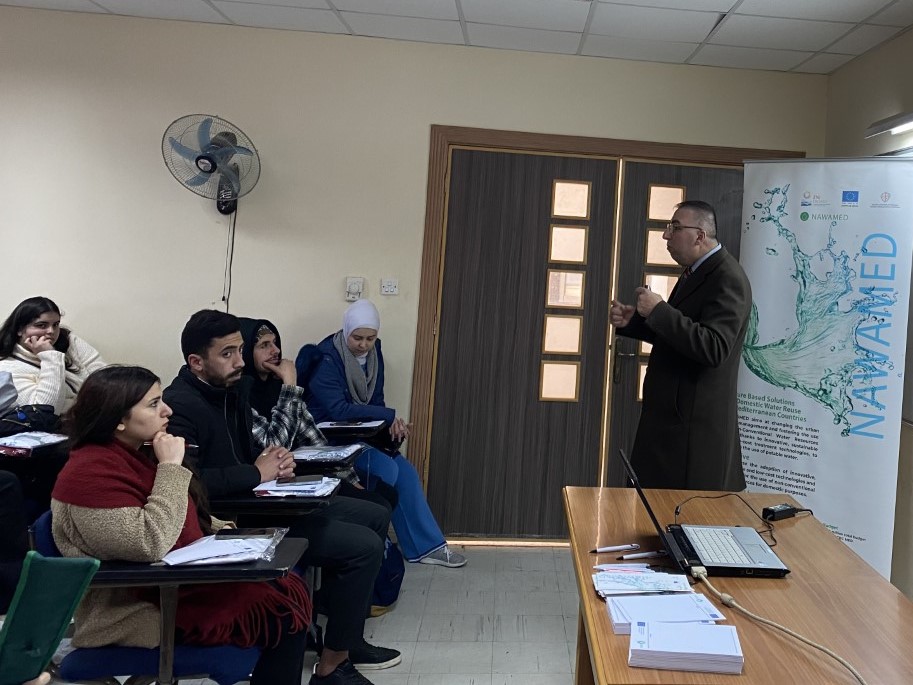
At the beginning of each camp, Prof. Ahmed Al-Salaymeh, NAWAMED project coordinator at UJ, briefly introduced the project.
Then, the experts Arch. Riccardo Cilia and Arch. Barbara Bonadies from IRIDRA held a short lecture on the application of Nature-Based solutions for greywater treatment and on the design of the technology used to treat greywater in the nearby student dormitory, one of the NAWAMED pilot plants in Jordan. In addition to the theoretical lectures, the school camps included technical field visits to the University of Jordan’s pilot site, the Al-Zahra’a students’ dormitory. As such, the participants had the opportunity to gain knowledge and experience on the design and the construction phases of the green façade technology used at the Al-Zahra’a building and direct insights on the filling materials for the pots, a crucial step for the treatment efficacy of the solution.
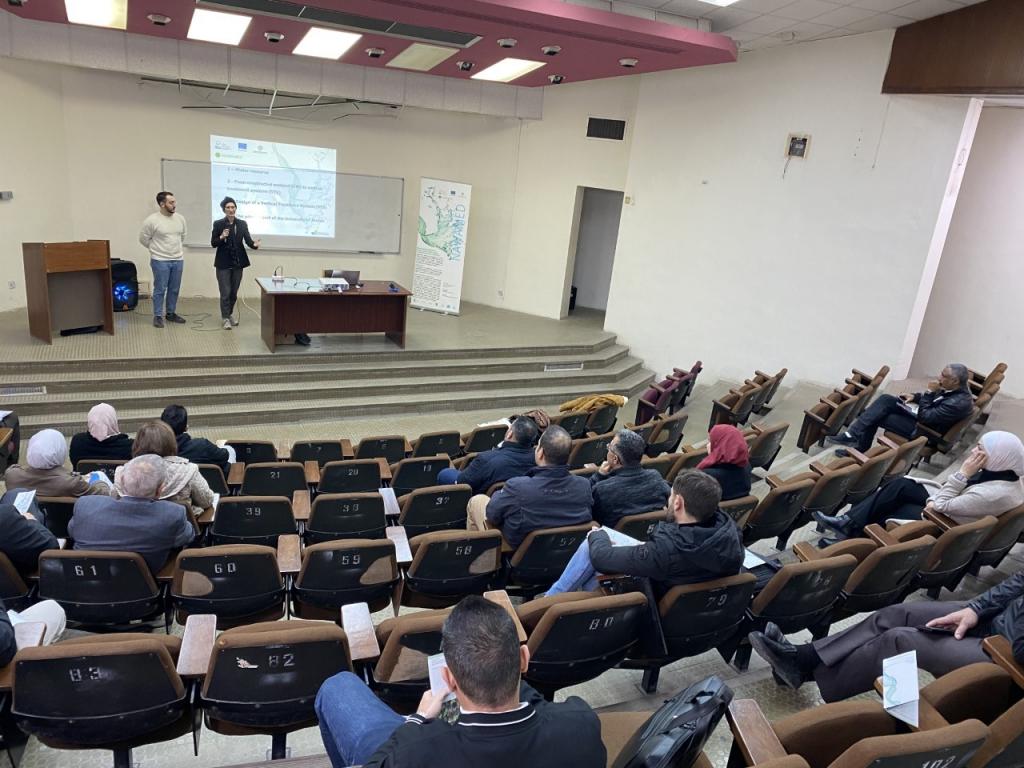
The day before, the IRIDRA team met the company in charge of constructing the pilot plant and the local engineers overseeing the construction to explain and train them on the innovations brought by the NAWAMED solutions and discuss technical issues. This fruitful interaction continued also during the school camps.
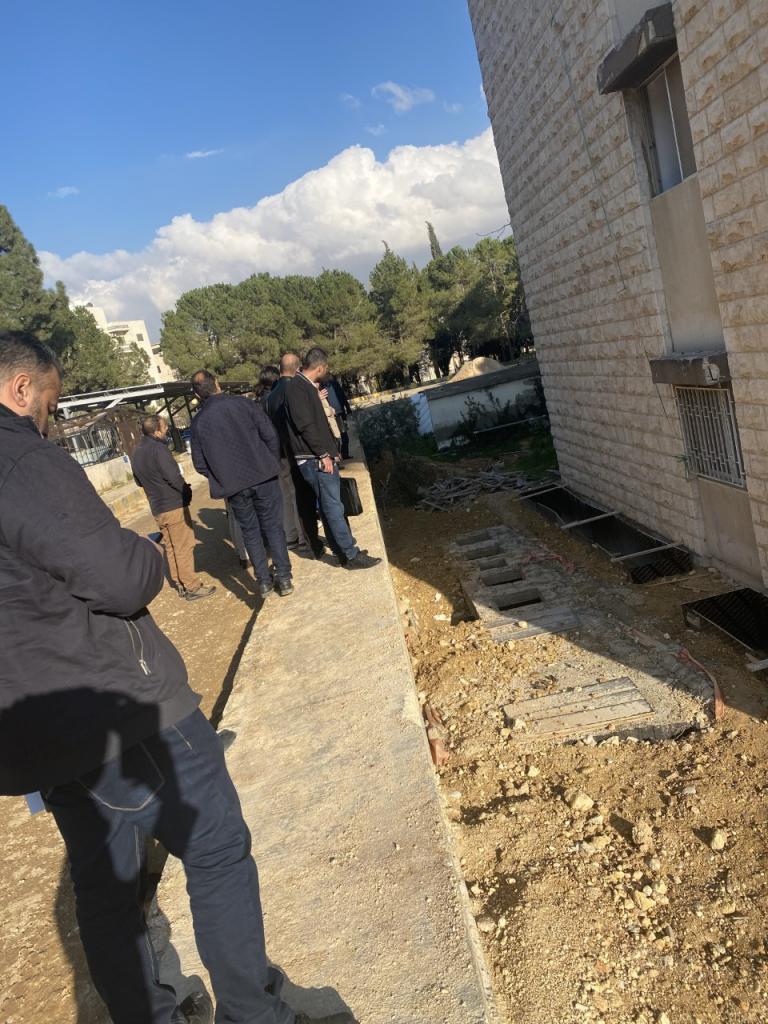
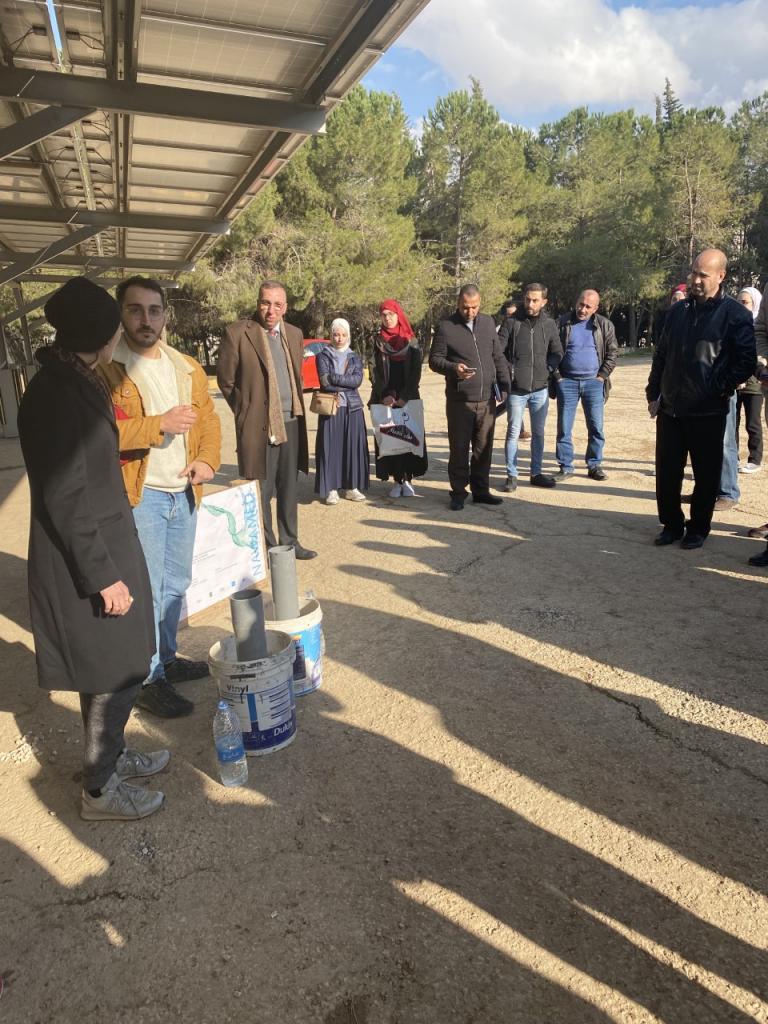
One of the concerns raised by the participants was the smell and the possible presence of insects. Engineer Nicola Martinuzzi (IRIDRA), however, assured them, given his vast experience in applying similar technologies, that the installation would not cause any such discomfort. The school camps stimulated the participants’ interest, and one of them even commented, "It would be a good solution for watering olive trees". The collective reflection then shifted to the importance of replicating this type of technology due to the current water scarcity situation in Jordan and, more in general, in the Mediterranean region, but also because of the aesthetic improvement these installations bring to the buildings.







